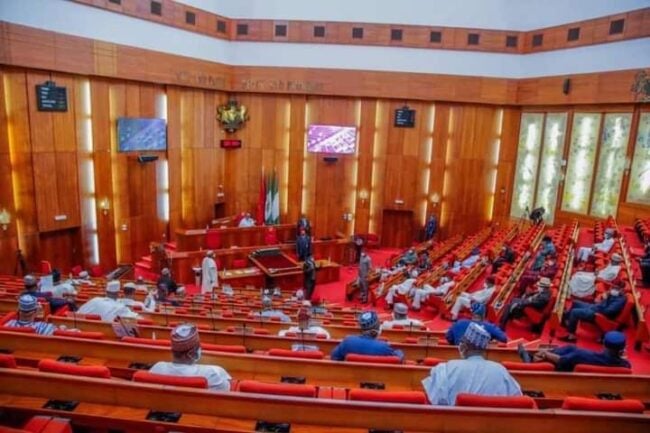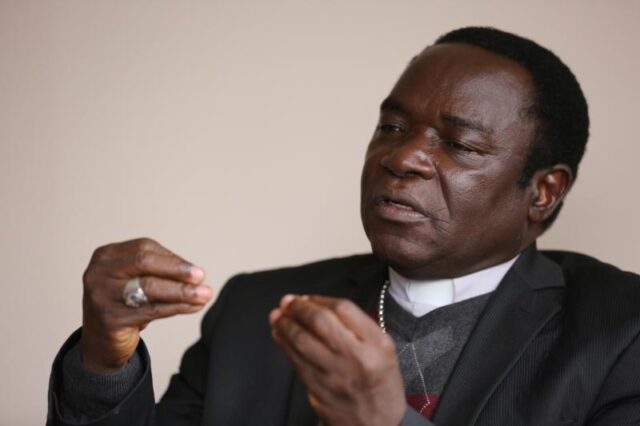Dear readers, I kid you not. In the last week, there was nothing that dominated my attention and topped my priority as much as the electoral amendment bill 2021.
First, this is because I believe that sustainable change is the result of dialogue, political engagement, debates, organising and mobilising. I also have a conviction that from the current system, we can unfurl a new one and reinvent the wheel. The second one is that for over a year now, I have been a part of the #FixElections campaign – coordinated by YIAGA AFRICA, and subsequently, coalition of Civil society groups that have been working to ensure those critical amendments are captured in the current electoral amendment process. And lastly, I have a clarity that the future of our country depends on our ability to ensure that votes are not just counted but that they truly count and reflect the popular will of the people!
For us, last week was therefore a defining moment, that after much dilly-dally by the National Assembly, the report was finally going to be laid, considered, and passed. We were however clear that any electoral amendment that does not reflect the fundamental need of Nigerians particularly the adoption of electronic transmission of results will not be acceptable or tenable. This is because we had a sense of foreboding, that there was surreptitious interest to sabotage the electronic transmission of results even after it had long been captured in the committee’s report.
The days have come by, and the National Assembly has finally considered the electoral bill 2021 which is expected to replace the electoral act 2010, but what changed? To be fair, I am unable to describe the electoral amendment bill consideration that was witnessed in both chambers of the national assembly, as anything other than a charade, a poor attempt at comedy and a legislative ritual that lacked depth, critical thinking, and sound judgement.
Advertisement
I personally find it difficult to describe an electoral bill as progressive when it does not deepen the use of technology in our electoral process particularly that of electronic transmission of results. This is the reason I find the Senate’s position on the electronic transmission of results very defective, that foremost, by asking the Nigerian Communications Commission (NCC) to determine feasibility takes away the Independence of the electoral body (INEC) and the subsequent provision that the National Assembly should again come back to approve its use, is just illogical.
It is noteworthy, that those who were majorly for this position are Senators from the ruling party, including the Senate President Ahmed Lawan, whom I think has been uninspiring and rather lacklustre at his job. On Sunday, I read his defence of this position, which he anchored on national coverage of internet connectivity, I think that rather than give such disingenuous defence he could have chosen to be quiet anyway like he has always been on matters that require his attention the most. But here is why I think Ahmed Lawan’s position was faulty, a position which I also heard Deputy Speaker Idris Wase amplify while he presided over plenary.
One, we have at least 18 months until the next general election, if the present national coverage stands at 50.3% is it impossible to improve national coverage to about 80-85%? How about committing to fund NCC and give them a clear target to make this a critical priority over the next year? Also, for the remote areas that lack connectivity, the results can be transmitted within a touching distance once the electoral officer gets to a place that has connectivity.
Advertisement
What the Senate only demonstrated is their ability to muddle issues and constitute a clog in the wheel of progress. Leadership from what I understand must always be about solutions. The Senate had one job, it was to address the challenge head-on by providing solutions but rather than face the challenge, they deflected and danced around it ignominiously.
Festus Okoye, INEC’s Commissioner for Information and Voter Education said over the weekend that the Commission has “uploaded results from very remote areas, even from areas where you have to use human carriers to access.” He said the Commission had made it clear that they have the capacity and the will to deepen the use of technology in our electoral process. My question then is what is the fear of the National Assembly, particularly the Senate.
It will never make sense to me, that the Senate and as a matter of fact, the National Assembly would go on an electoral amendment process that fails to mainstream the electronic transmission of results, what then have they done. Laws by their nature are expected to be progressive, if the current electoral amendment bill is signed into law without express provision for electronic transmission of results, then what the National Assembly may have succeeded in doing is take the country many steps backwards.
While they may have succeeded in tentatively impeding the electronic transmission of results, I have this bad news for them, that such pyrrhic victory against the people can only be short-lived, because no one can resist an idea whose time has come. Either today or tomorrow, Nigeria’s election will and must be deepened by technology.
Advertisement
As I round off this intervention, I think this provides a very important opportunity to remind those who wield political power today, that while it is enough to be lost in the allure and grandeur of power, it is important that they remember the brevity and transient nature of power, no one not even all those who voted to support that ignoble amendment will remain in power forever. History will either be kind or harsh to them, as always, the choice is theirs!
Add a comment







